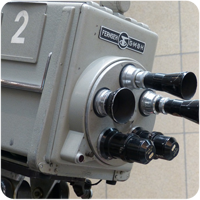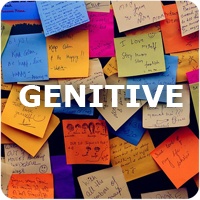Het arrangement 11.3 Newspapers and television - tto123 is gemaakt met Wikiwijs van Kennisnet. Wikiwijs is hét onderwijsplatform waar je leermiddelen zoekt, maakt en deelt.
- Auteur
- Laatst gewijzigd
- 11-05-2025 18:11:10
- Licentie
-
Dit lesmateriaal is gepubliceerd onder de Creative Commons Naamsvermelding-GelijkDelen 4.0 Internationale licentie. Dit houdt in dat je onder de voorwaarde van naamsvermelding en publicatie onder dezelfde licentie vrij bent om:
- het werk te delen - te kopiëren, te verspreiden en door te geven via elk medium of bestandsformaat
- het werk te bewerken - te remixen, te veranderen en afgeleide werken te maken
- voor alle doeleinden, inclusief commerciële doeleinden.
Meer informatie over de CC Naamsvermelding-GelijkDelen 4.0 Internationale licentie.
Aanvullende informatie over dit lesmateriaal
Van dit lesmateriaal is de volgende aanvullende informatie beschikbaar:
- Toelichting
- Deze les valt onder de arrangeerbare leerlijn van de Stercollectie voor Engels voor tweetalig onderwijs, leerjaar 1,2 en 3. Dit is thema 11 'Press and media'. Het onderwerp van deze les is: Newspapers and television. In deze les worden aspecten van kranten en televisie besproken zoals Britse media, 'binge-watching', televisieseries en tv-kijkgewoonten. In de grammaticaopdracht wordt de genitive/bezitsvorm behandeld.
- Leerniveau
- VWO 2; HAVO 1; VWO 1; HAVO 3; VWO 3; HAVO 2;
- Leerinhoud en doelen
- Engels;
- Eindgebruiker
- leerling/student
- Moeilijkheidsgraad
- gemiddeld
- Studiebelasting
- 1 uur 40 minuten
- Trefwoorden
- arrangeerbaar, binge-watching, britse media, engels, genitive, newspapers and television, stercollectie, televisieseries, tto123, tv-kijkgewoonten
Gebruikte Wikiwijs Arrangementen
VO-content Engels. (2023).
11.3 Newspapers and television - hv12
https://maken.wikiwijs.nl/140097/11_3_Newspapers_and_television___hv12

 The subject of this period is newspapers and television.
The subject of this period is newspapers and television.

 British media
British media
 Binge-watching
Binge-watching Study the vocabulary. (10 minutes)
Study the vocabulary. (10 minutes)



 An essay about binge-watching
An essay about binge-watching What have you learnt in this period?
What have you learnt in this period?